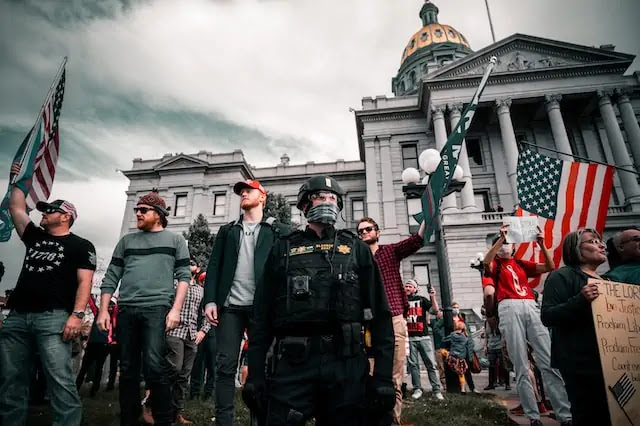The Select Committee to Investigate the January 6th Attack on the United States Capitol released its final report this month. As expected, the report has faced mixed reactions. Some secular organizations in the U.S. have questioned the lack of attention to Christian nationalism. They are right to do so. After all, seems clear that Christian nationalism was an important motivator. Glossing over this fact is misleading.
Here's some what the Freedom From Religion Foundation (FFRF) had to say:
The rioters, white supremacist Nick Fuentes primary among them, frequently engaged in Christian rituals before and during the assault. The “Jericho Marches,” in which rioters walked around the Capitol in the days prior praying for the results of the election to be overturned and calling for “spiritual warfare,” the chanting of “Christ is king,” banners containing biblical messages and crosses carried by the insurrectionists show strong evidence of Christian nationalism. More prayers at the “Save America” rally organized by Trump before the putsch, prayers and even exorcisms inside the Capitol during the insurrection, as well as the strong Christian nationalist ties by public officials associated with the “Stop the Steal” movement likewise demonstrate its pervasiveness.
That is compelling evidence that Christian nationalism played a role in the insurrection. It doesn't have to have motivated all the domestic terrorists to be relevant. It motivated enough to command attention.
How much attention does the lengthy report devote to Christian nationalism? The FFRF notes that it is mentioned once. Outside of the report, at least two committee members have addressed it. Both agreed that Christian nationalism was relevant. And yet, this isn't as clear from the report as it should be.
To understand why this matters, consider how the FFRF concludes their news release:
“While it’s not surprising in our religion-deferential country that the Christian nationalist underpinnings of the Jan. 6 insurrection were considered too hot to handle by the committee, it’s very disappointing,” says FFRF Co-President Annie Laurie Gaylor. “Only mentioning Christian nationalism once, and not addressing the problem directly opens the door for further violence to come.”
I agree. This is more evidence of Christian privilege at work. It isn't surprising, but it is disappointing.
I understand why the committee would have been cautious in what they said about Christian nationalism. Many American Christians refuse to distinguish between Christian nationalism and Christianity. Republicans would have pounced on any opportunity to label the Democrats as anti-Christian. Then again, they'll continue to do that no matter what the Democrats do.
If the point of the investigation was to get at the truth, Christian nationalism deserved more attention. After all, it was an important part of the truth.
If we want to solve problems, we shouldn't ignore their causes. On January 6, 2021, we learned that we have a problem. We haven't solved it yet. If we want to do so, we need to pay more attention to Christian nationalism. It poses a significant threat to democracy. We need to renew our commitment to secularism and church-state activism.
Photo by Colin Lloyd on Unsplash
